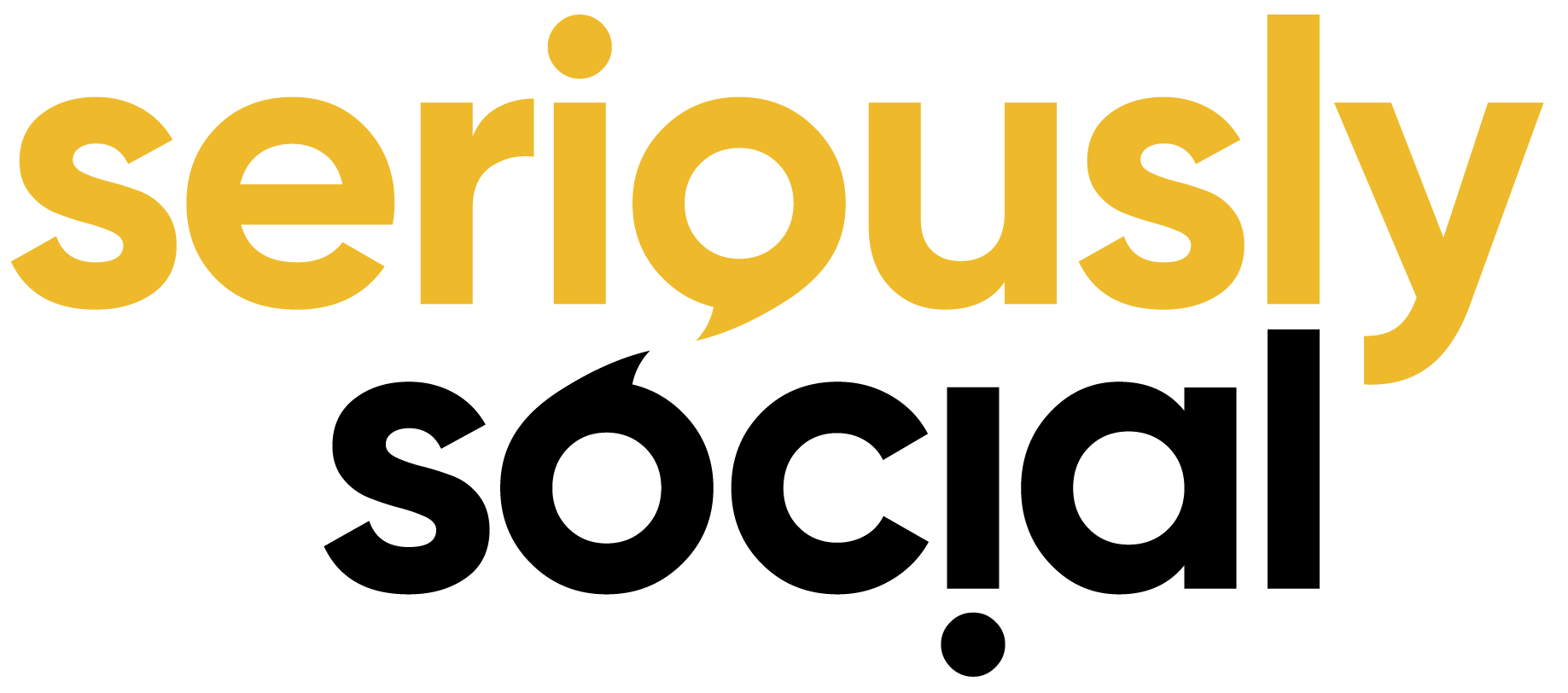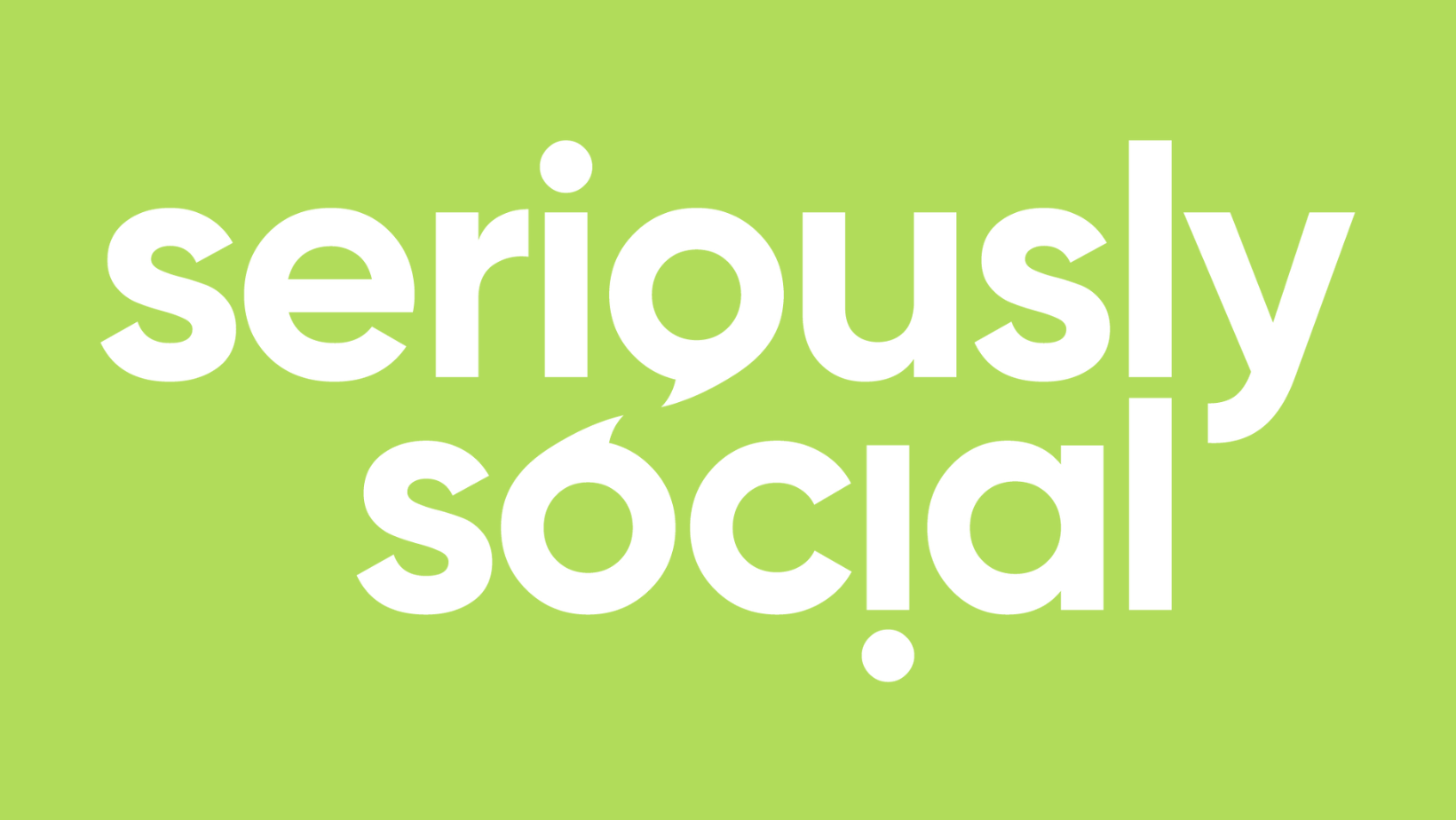Episode Notes
Which professions and brands do you trust the most? What makes them trustworthy? In this episode, Professor Nicole Gillespie from the Trust, Ethics and Governance Alliance at the University of Queensland talks us through trust—how to build it, maintain it, and what to do if we lose it. Going beyond the personal perspective, Professor Gillespie examines the factors that make an organisation trustworthy and the psychology behind building consumer confidence.
Transcript
Ginger Gorman (host) (00:02):
Since 1976, the pollster, Roy Morgan, has been asking Australians what they think of certain professions, essentially, who do we most trust based solely on their job? As a journalist, I can tell you we never rate very highly. We’re usually somewhere above used car salespeople but below lawyers and bankers. So can you guess who is the most trusted?
Speaker 2 (00:26):
Fire and rescue. When you think about it, your house burns down, they’re there to help.
Speaker 3 (00:31):
Librarians. I think they’re fabulous. You can ask them with confidence for information about just about anything and they’ll give you what is true and what is real, not just some rando opinion. Although if you wanted a rando opinion, they’d be able to find those, too.
Speaker 4 (00:53):
ADF and ADF personnel. I was in the army myself. I joined as a soldier many years ago and later became an officer. From the beginning, you’re taught the values of integrity, honesty, fairness, and transparency.
Ginger Gorman (host) (01:12):
Only 30 professions are included in the survey, and librarians and military personnel aren’t among them. Strangely, neither are paramedics or firefighters, although public opinion pollsters are. The most trusted professions are pretty much always nurses, followed by doctors and pharmacists, although not everyone would agree with that.
Speaker 5 (01:37):
Hey, Ginger, you asked about what professionals I trust the most, and unfortunately, I’m not going to say medical professionals like a lot of people would, and that’s because I’ve unfortunately had a lot of poor experiences, especially as a disabled woman with invisible and dynamic disabilities. It’s really hard to get them to listen to you and believe you, and you experience a lot of ableism, a lot of stigma, a lot of medical misogyny, and a lot of medical gaslighting. I don’t really believe that they will listen to me or help me, which is really unfortunate, and a lot of disabled people experience this. Professions that I trust the most though would be my support workers because I have to. There’s a lot of trust involved in that relationship.
Ginger Gorman (host) (02:24):
In our very unscientific straw poll, some of the responses really surprise me because despite royal commissions and social media sentiment, it mostly came down to personal experience.
Professor Nicole Gillespie (02:37):
Trust is contextual. So many different factors can influence it.
Ginger Gorman (host) (02:41):
Professor Nicole Gillespie is Chair in Organisational Trust at the University of Queensland and she’s a fellow of the Academy of the Social Sciences in Australia.
Professor Nicole Gillespie (02:51):
Every day in our interactions, we’re making a difference for trust in how we listen to others, in how we respond to them and interact with them. We can think about how trustworthy are we being when we’re interacting with others.
Ginger Gorman (host) (03:06):
This is Seriously Social. I’m Ginger Gorman, and on the pod today we’re talking about trust, how organisations gain it, lose it, and repair it.
Professor Nicole Gillespie (03:30):
We all know intuitively what trust is, based on the trusted relationships that we have, maybe with members of our family, with our friends, it could be our doctor or our employer. So when we trust another, we willingly make ourselves vulnerable to them. For example, by relying on a colleague at work to do something important for us, or maybe sharing sensitive information with them, knowing that they’re going to keep it private. We see customers trusting their insurance company that they’ll have their back when something goes wrong, so in those moments that matter.
(04:00):
And when we place our elderly parents into an aged care home, we’re trusting that they’ll be treated with care and dignity and that their needs will be met. Even when choosing an airline, we’re trusting that airline to get us safely and on time from one location to another. So we willingly make ourselves vulnerable in all these different ways because we have confident, positive expectations that the person or organisation that we’re trusting are going to do the right thing by us.
Ginger Gorman (host) (04:26):
It’s also a two-way street.
Professor Nicole Gillespie (04:28):
And we all impact trust in our everyday interactions in how we listen, respond, and interact with others, and how trustworthy we are ourselves with our relationships, and also in how we trust or distrust others. So trust has a reciprocal element. When we trust others and are willing to be vulnerable with them, people typically reciprocate and trust us back.
Ginger Gorman (host) (04:50):
And it’s something we have to keep nurturing.
Professor Nicole Gillespie (04:53):
It’s not something that we can set and forget. It’s something which is an ongoing accomplishment. Every interaction is an opportunity to build trust or if we’re not paying attention, we may be diminishing trust through our everyday interactions.
Ginger Gorman (host) (05:08):
How do we as individuals decide to trust someone?
Professor Nicole Gillespie (05:12):
What we know from our research is that three key aspects really stand out in influencing this decision to trust another. So the first of this is ability, whether another person has the knowledge, the skills, or ability to reliably perform in the area that we’re trusting them. We also think about benevolence. So does the other person treat people fairly and respectfully? Then the final pillar here is integrity. So does the person or organisation we’re trusting, do they take responsibility for their actions? So these three pillars, ability, benevolence, and integrity, these really drive our judgments about another’s trustworthiness. And if any one of these characteristics is missing, it can undermine trust.
Ginger Gorman (host) (05:55):
What about when it comes to organisations?
Professor Nicole Gillespie (05:58):
So our research shows that the same three factors that influence trust in a person, that ability, benevolence, integrity, they also function when we’re making a judgment about the trustworthiness of an organisation, they just manifest somewhat differently. It is a real key difference. So both when we’re making a decision to trust an organisation or a person, we can, of course, draw on what I call our firsthand experiences, so our interactions directly with that person or organisation. When it comes to making a trust decision about an organisation, we also often rely on more presumptive basis of trust. So these are forms of trust which really come from our socialised understandings of people’s roles, of rules, of group membership, and of the broader institutional environment. So these are what I call more impersonal forms of trust building. So we can actually trust an organisation or a representative of the organisation without necessarily ever meeting them or having any personal experience or interaction with them.
Ginger Gorman (host) (07:02):
Let’s go back to the example of doctors and nurses.
Professor Nicole Gillespie (07:05):
We just typically immediately trust the doctor because they’re a doctor. So what are we really trusting in there? It’s not because we’ve necessarily met that doctor before or know anything personally about them. It’s because we’re trusting in that broader institution of medicine, the idea that this institution has ensured that doctors have the required skills and knowledge and duty of care through their education, through their training, through accreditation and licensing, through the fact that they have to take a Hippocratic Oath to put patients’ needs first.
(07:36):
When trust is based on these more presumptive forms of trust or impersonal forms of trust, they can be powerful, but they can also be quite fragile and can be broken quite quickly. Probably 20 or 30 years ago, we might’ve just assumed a priest or an aged care provider or a bank or a social media company were trustworthy, whereas now I think people are more conscious about the need to really evaluate some evidence of trustworthiness rather than just assuming trust.
Speaker 6 (08:06):
Hi, Ginger. You were asking about which people and professions I trust. Well, my answer is police in the ACT. It’s the first thing that came into my head. And I guess the reason is we’ve had to call them to our family home about a dozen times in the last 18 months as one of our family members has acute mental health issues, which has taken us, unfortunately, into the family violence sphere at times.
(08:35):
And every time a police officer has turned up, they’ve been nothing short of amazing, professional, kind, empathy, without being over the top. They’ve looked after every single person involved, stayed until they were absolutely not needed anymore, and called the next day at times just to check on everyone. Sure. As a cisgender white, hetero, married woman, this is my only interaction with the police ever, but from a personal point of view, wow, amazing. And I trust them and I feel safe whenever I see a police car.
Ginger Gorman (host) (09:16):
Australia’s trust in police is at a 10-year low according to the June 2023 Productivity Commission report. But despite that fall, as a country, we actually place a very high level of trust in police, and that trust increases the older we get. According to the ANU What Australia Thinks study, our confidence in police as an institution is more than 75%. But does that mean the institution should rest on its laurels if confidence is high but decreasing? What can it or any institution do to maintain trust? What happens to organisations when they don’t address declining trust?
Professor Nicole Gillespie (09:59):
Trust failures are both predictable and actually preventable. Typically, many people in the organisation, sometimes even beyond the organisation, they know that there are problems, but they’re just not dealt with. And these problems are left to escalate and get bigger and bigger over time until, typically, it spills over into some kind of an inquiry or royal commission. And it does really beg that question of, well, why didn’t senior leaders or people in the organisation or regulatory bodies, why didn’t they intervene earlier on? Sometimes the senior leadership teams and the boards of the organisations are somewhat insular. They can become embedded in quite tight networks of peers that really reinforce existing beliefs. It’s a little bit like being in an echo chamber. And this can reinforce outdated views, outdated beliefs, and can mean that they’re not necessarily in touch with how stakeholder expectations have shifted and changed over time.
(10:57):
I think a good example of this is with some of the mining companies that really had their head in the sand around climate change and evolving community expectations that were slow to adapt. In contrast to that, there were some companies in that sector who were really listening. They really had their finger on the pulse and they took on board the evidence of climate change very early on and they adapted their strategy and they’re really well positioned now. Another problem here can be a lack of awareness of those problems internally. So often, actually, employees on the ground have a better understanding of what some of the problems are than some of the most senior decision makers. Sometimes those at the top are only hearing the good news stories, they’re not actually receiving, if you like, the bad news stories. And a contributing problem can be when the organisation has a blame culture or a culture of shooting the messenger of bad news. And of course, if we’ve got a culture like that, people are just not going to be willing to raise the problems and issues. They’re not going to escalate them.
Ginger Gorman (host) (11:59):
So what does it take for an organisation to repair trust?
Professor Nicole Gillespie (12:03):
What’s really critical is an organisation’s early response, so when the violation first becomes known. So here, it’s really important to be timely, responsive, and credible in the first response, acknowledging what’s happened, expressing that sincere regret for the consequences, and really committing to a full investigation of the causes. And if there’s any ongoing harm that’s occurring, really taking immediate action to address that so, for example, product recall. These responses really reassure people and set a really positive tone for repair. This is a much more effective response than what we’ve seen in some situations where organisations try to hide or cover up the problem or deny their responsibility or are really slow or unresponsive.
Ginger Gorman (host) (12:50):
At the risk of dating this particular episode, the toy company, Mattel, has had a massive year. The film Barbie made a billion dollars at the box office in just three weeks. And for a film so overtly packed with product placement, its critical reception was overwhelmingly positive. But Barbie isn’t just one big ad for Mattel. It also pokes fun at Mattel in a way that very few brands would be comfortable signing off on. Maybe that’s because the toy company is no stranger to trust failures, and it’s pretty adept at bouncing back.
Professor Nicole Gillespie (13:29):
Mattel actually had a problem with lead paint on their toys and they came out immediately with a massive product recall, which they managed to get across the globe pretty much within about 24 hours to really make sure that people were going to be kept safe. And at the same time, they immediately said that they had acknowledged that this had occurred, they were outright in saying how much remorse they had for the people that had been affected, the children in this case, and that they committed to this full investigation of figuring out what had gone wrong in their supply chain and making sure that they would fix it.
(14:06):
So I think that really set the tone for the whole trust repair, which was very successful in their case because it was really timely, it was really responsive, and importantly, it really connected with what the people who had been affected, the victims of this, were experiencing. So the silver lining with these trust repair processes is that even though they can take so long and can be a really difficult, expensive, and really tumultuous processes, what they often do is they actually strengthen the organisation’s trustworthiness. So giving it a stronger foundation for trust going forward.
Ginger Gorman (host) (14:39):
But not every company or brand is comfortable with the idea of owning its failings.
Professor Nicole Gillespie (14:45):
Sometimes, unfortunately, we see organisations trying to manipulate investigations, trying to, if you like, scapegoat or hide their involvement or try to cast what happened in a more benign light. But this is something which we see time and time again in our examples, is that in this age of digitalisation, any of these dishonest tactics really backfire. They often create cynicism and even just further distrust. So a really good example of this is AMP. So AMP were in the media back during the Royal Commission into Banking and Finance. And they were in the media really talking about how their coverup was actually worse than their actual initial failure. And this is where they were really slammed publicly by the regulator because of that coverup and the CEO, the chairman had to resign.
Ginger Gorman (host) (15:35):
Of course, trust failures used to be exposed by whistleblowers through journalists and repairs made through press conferences and apology tours. Nowadays, anyone can expose organisational failings with the power of social media.
Professor Nicole Gillespie (15:50):
In this digital age, we’ve got so much capacity now to voice our opinion, and we’re seeing this more and more. An example is in Starbucks in the US, within a few hours of some customers being unfairly treated, this was going viral on social media and we had groups campaigning across the US against Starbucks because of this mistreatment that occurred in one of their stores. So that’s definitely one aspect that’s driving this heightened sensitivity to, I think, ethics and integrity.
(16:24):
And I do think that we’re in an age of enlightenment thinking about how the organisation treats all stakeholders rather than where we’ve been in the past, which has often been a shareholder primacy, really just focusing in on investors and making sure that their needs are being met often at the expense or possibly even harm of other stakeholders. So I think all of these different forces mean that there’s more attention on creating trustworthy organisations now than what there’s ever been in the past.
Ginger Gorman (host) (16:54):
Trust in the digital age is a complicated thing. As consumers, we seem to be both skeptical and blindly trusting. We call out companies for their prejudices and coverups, but we give them our personal information without really stopping to think about what they’ll do with it or even how they’re protected. How do data breaches affect trust?
Professor Nicole Gillespie (17:16):
Obviously, they make customers really vulnerable because their data is now often on the dark web and there can be identity theft, there can be financial loss, reputational damage. It also, of course, makes the organisation very vulnerable too, whether that’s because of their reputation or customer and financial loss as well. In terms of strategies to deal with this, my belief is that it’s actually really difficult for organisations to confidently say that they can protect all data. So I think a really pragmatic approach in that context to mitigate damage is to embrace a data minimisation perspective on this.
(17:54):
What is the minimal data we need? And let’s try to not collect sensitive information that we don’t directly need. And that’s a real paradigm shift because many organisations have been on a trajectory of really trying to maximize the data that they can obtain from customers. So I think what we will see in the future is a shift from this data maximisation approach to more of a data minimisation approach in a quest to protect customers and really to mitigate against any potential trust breaches through the loss of data.
Ginger Gorman (host) (18:26):
The research shows to avoid trust failures, a company can’t just think about its mitigation strategy. Trust needs to be built into every aspect of the organisation. They need to build benevolence, ability, and integrity into their everyday routine.
Professor Nicole Gillespie (18:43):
Trustworthy organisations really understand that culture is powerful and dynamic in influencing how people behave in the workplace. And they use a broad range of strategies and HR processes to really reinforce those values of integrity, ability, and caring for stakeholders. So all the way through from onboarding new employees into the organisation, that early socialisation, making sure that’s really reinforcing the right values. So what leaders do really symbolises and shapes the culture. So what leaders are directing and authorising and role modeling is really critical to trustworthy conduct, and this is why trustworthy organisations invest really heavily in the capabilities of their leaders.
Ginger Gorman (host) (19:24):
So, Nicole, you’ve talked a lot about repairing trust with an organisation, but how does that differ to repairing trust with a person?
Professor Nicole Gillespie (19:33):
Apologies are really important and they can be so effective in repairing trust, but not all apologies are equal. So a really good apology will have three different elements to it. First of all, an explanation. Second is acknowledging responsibility. And third, making some sort of offer to repair. The effectiveness of an apology can also be augmented when we really truly express that we’re regretful, so reassuring people that it won’t happen again and also requesting forgiveness. Research shows that insincere apologies from leaders can actually result in even more negative reactions than actually not apologising at all.
(20:09):
It’s much harder to recover from a failure of integrity or benevolence than it is to recover from a failure of competence or ability. And this is because an integrity failure is seen as really diagnostic of the character of a person. If they’ve lied to us once, we think they can always lie to us at any point in the future. Whereas a competence failure, if someone hasn’t performed to our expectations and maybe it let us down because of that, we know that could be because of situational circumstances. There’s a lot of different factors that can come into play, so we tend to see that as more situational and therefore, not necessarily part of our ongoing relationship with that person.
Ginger Gorman (host) (20:47):
Thanks for listening to Seriously Social. I’m Ginger Gorman. This podcast is produced on Ngunnawal, Ngambri, Yuggerah, and Turrbal Land, and we pay our respects to Elders past and present. Seriously Social is produced by Kim Lester and Cheryl Robinson, engineered by Mark Gageldonk, aka Baldy, and our executive producers are Bonnie Johnson and Clare McHugh. It is an initiative of the Academy of the Social Sciences in Australia. Next time, we’ll examine incarceration. Who is Australia locking up and why?
Useful Links
- 2023 Productivity Commission Report
- What Australia Thinks ANU Centre for Social Research and Methods
- Mattel recalls nearly 100 000 toys after lead paint alert The Guardian
- AMP scandal shows the coverup is often worse than the crime ABC News




